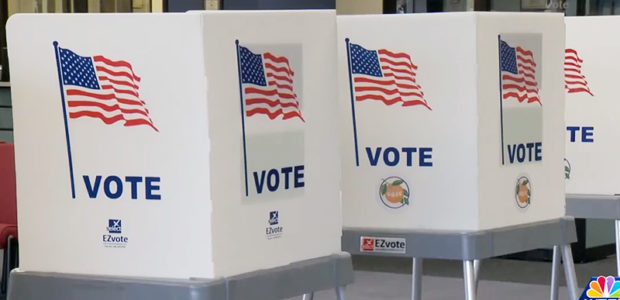


The DOJ is now investigating how states remove ineligible voters from their voters and, in some cases, have requested voters from the states.
The DOJ’s Civil Rights Division, led by Assistant AG Harmeet Dhillon, is focusing on swing states, but not solely. They currently have a lawsuit against Orange County, California over access to a complete voter roll.
Here’s more from USA Today:
The Department of Justice is conducting a state-by-state review to scrutinize how officials manage their voter rolls and remove ineligible voters.
The effort is so far focused on battleground states. It follows President Donald Trump’s widely challenged executive order in March that sought to create new requirements to register to vote and backed a range of voting policies long supported by Republicans.
In nearly identical letters to state election officials in Minnesota, Nevada and Pennsylvania, the DOJ asked them to describe how they identify people who are felons, dead, nonresidents, or noncitizens, and how they remove them from their voter lists.
A letter to Arizona officials said the state should require people who have driver’s license numbers to register to vote using that number instead of the last four digits of their Social Security numbers. The DOJ said the office should conduct a review of its voter file.
The department also sued Orange County, California, for not providing enough identifying information in response to a records request, and filed documents in support of lawsuits brought by the right-leaning group Judicial Watch that say Illinois and Oregon have not been removing enough people from their voter rolls.
“It is critical to remove ineligible voters from the registration rolls so that elections are conducted fairly, accurately, and without fraud,” said Harmeet K. Dhillon, assistant attorney general of the DOJ’s Civil Rights Division said in a statement that a spokesperson provided to USA TODAY. She said the department would “vigorously enforce” federal law that requires states to “conduct a robust program of list maintenance.”
In Orange County, the DOJ wrote in a federal lawsuit in June that the attorney general received a complaint about a noncitizen receiving a ballot, and that the department requested five years of data on how the county removes noncitizens from voter registration rolls.
The county provided information but redacted identifying numbers and signatures, among other things, according to the lawsuit. The DOJ says that’s illegal, and wants the federal court to force the county to provide the full information.
The DOJ also asked Nevada and Minnesota for copies of their statewide voter registration list with both active and inactive voters. Inactive voters generally have not voted in recent elections and are put on the inactive list to preserve their registration while queuing them for future removal.
In its federal lawsuit in Oregon, which the DOJ is backing, Judicial Watch alleges the state has too many people on its voter rolls in comparison to its voting-age population, and wants the federal court to force the state to develop a new removal program. Oregon contends that the organization doesn’t have the right to sue and hasn’t proven it’s been harmed, which are both necessary for the suit to move forward.
In Illinois, Judicial Watch says that 11 counties removed no voter registrations between November 2020 and November 2022, and 12 other counties removed 15 or fewer during the same time. The suit does not allege that anyone voted illegally, but questions whether so few voters could have moved or died. The Illinois State Board of Elections declined to comment on pending litigation.
“When Illinois voters cast their ballots, they should be confident that their vote is given its due weight, undiluted by ineligible voters,” the DOJ wrote in its July 21 filing in the case. “This confidence is the bedrock of participatory democracy.”
